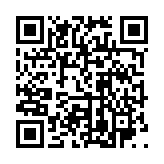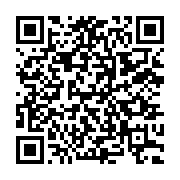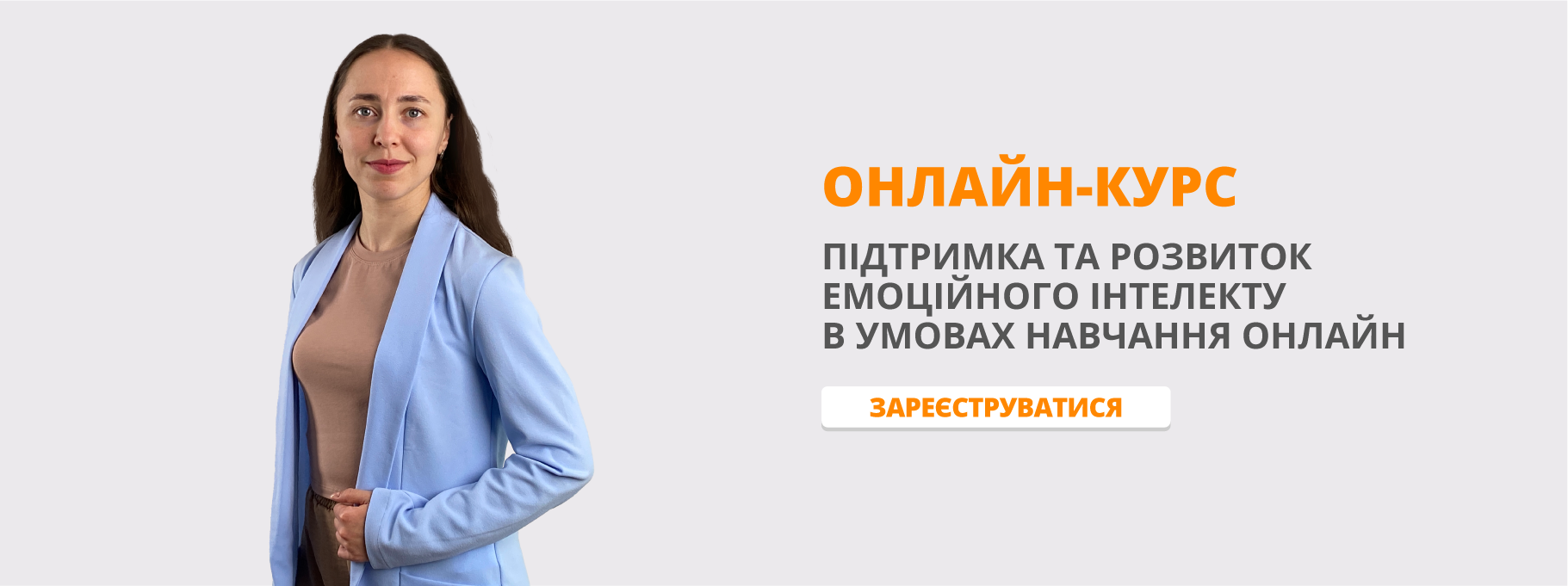Traditional holidays in Ukraine, Great Britain and the USA, методична розробка заняття
Лисичанський промислово-технологічний фаховий коледж
Traditional holidays in Ukraine, Great Britain and the USA
методична розробка заняття
з дисципліни «Іноземна мова ( за професійним спрямуванням)»
в закладах фахової передвищої освіти
Розробник: Скиба Н.М., старший викладач, викладач вищої категорії Лисичанського промислово-технологічного фахового коледжу
2021
ВСТУП
Методична розробка заняття виконана у відповідності з методичними рекомендаціями з підготовки та проведення практичних занять у закладах фахової передвищої освіти. Заняття підготовлено відповідно до робочої і навчальної програми з дисципліни «Іноземна мова ( за професійним спрямуванням)». У методичній розробці заняття подано розгорнутий план-конспект заняття у формі мовного практикуму з використанням методу критичного мислення, методики роботи з лексичним матеріалом, методу лінгвістичного квесту, рольовою грою, перелік літератури та необхідного обладнання, мету і задачі, надано чітку структуру заняття, вдало подано мотивацію пізнавальної діяльності студентів.
Методична розробка заняття відповідає теоретичному й методико-практичному розділам навчальної програми, має інноваційний характер, відповідає новітнім технологіям навчання, спрямована на формування комунікативної компетенції майбутніх фахівців, розвиток пам'яті, уваги, фонематичного слуху студентів, сприяють зацікавленості та формуванню комунікативної компетенції майбутніх фахівців.
Позитивним у даній методичній розробці є творчий підхід до підготовки матеріалу заняття, використання різноманітних джерел інформації, застосування інтерактивних методів проведення заняття, технічних засобів навчання, залучення студентів до самостійної пошукової роботи; поєднання окремих елементів навчання та виховання в єдину цілісну систему.
Методична розробка заняття може бути рекомендована для викладачів іноземної мови в закладах фахової передвищої освіти в якості як основного, так і довідково-дидактичного матеріалу.
МЕТОДИЧНА РОЗРОБКА ЗАНЯТТЯ
Тема заняття: System of education
Мета заняття:
Практична: вдосконалювати навички фонетичної вимови студентів; повторити вивчений професійно-орієнтований лексико-граматичний мінімум; формувати навички монологічного та діалогічного мовлення студентів на рівні мікровисловлювання; практикувати студентів у читанні текстів та виконанні післятекстових завдань; вдосконалювати навички аудіювання та вміння студентів щодо виконання різноманітних тематичних видів діяльності; вдосконалювати аналітичні навички та вміння студентів працювати в різних режимах, парах та малих групах; практикувати студентів щодо роботи з певними ситуаціями на основі поданих граматичних структур.
Розвиваюча: розвивати мовленнєву компетенцію, творчі здібності та психологічні якості (увагу, пам'ять, мислення, уяву) студентів; розвивати вміння студентів самостійно працювати з тематичними видами завдань; розвивати у студентів уміння переносу знань та навичок у нову ситуацію на основі здійснення проблемно – пошукової діяльності; формувати лінгвістичне мислення студентів як майбутніх фахівців; розвивати впевненість та співпрацю; формувати в студентів дружні взаємовідносини в ході виконання спільних завдань; розвивати готовність студентів до участі в спілкуванні англійською мовою та до подальшої самоосвіти в галузі володіння даною мовою.
Виховна: виховувати в студентів такі риси характеру, як доброзичливість, толерантність, ввічливість, гуманізм, активність, товариськість, самостійність, працелюбство, уважність; формувати позитивне ставлення в студентів до вивчення англійської мови, культури народу, який розмовляє цією мовою; розуміти важливість оволодіння англійською мовою і потребую користуватися нею в професійній діяльності; формувати в студентів повагу та чемне ставлення до обраної спеціальності; виховувати у студентів культури спілкування, прийнятої в сучасному цивілізованому світі, ціннісних орієнтацій, почуттів та емоцій.
Обладнання: словники, комп’ютер, роздавальний матеріал
Тип заняття: практичне
СТРУКТУРА ЗАНЯТТЯ:
1.Організаційний момент:
1)Привітання
2) Перекличка
3)Перевірка готовності до заняття
2. Мотивація навчальної та пізнавальної діяльності студентів, оголошення теми та цілей заняття.
3.Реалізація теми за планом
4. Підсумок заняття. Оцінювання
5. Домашнє завдання
План заняття:
1)Read the following text Traditional holidays in Ukraine, Great Britain and the USA
Like most European nations Ukraine sees the New Year in on December, 31. You can hardly find a person who doesn't hope that the Old Year with all its troubles will leave forever and the New Year will bring health, prosperity and happiness.

New Year celebrations gradually glide into one of the most important religious holidays – Christmas. Now it is an official state holiday and a day off. It is favourite with children who like to go from door to door, sing carols and get sweets from the hosts. Mothers of the family cook a traditional Ukrainian Christmas dish «kutya» which all the family eat together. Many people now like to go to church to listen to Christmas sermons.
Not long ago young people and lovers of all ages started to follow the English tradition of celebrating St. Valentine's Day on February, 14 by sending special postcards and giving lovely gifts to their sweethearts.
The next official holiday in Ukrainian calendar is Women's Day. Very few people remember now how it originated, but it is an important signpost in the women's feminist movement in the world, because it commemorates the beginning of women's struggle for their economic, political and social rights. Today, it is the day to show love and respect to women of all ages.

By Orthodox canons Easter, the day of Christ's Resurrection, is celebrated in Ukraine later than in other European countries. Only several years ago it was proclaimed an official state holiday and many people celebrate it by attending the all-night service in church and having a tasty meal at home on Red Sunday. Children enjoy painting Easter eggs and eating Easter bread.
Victory Day which is annually marked on May, 9 commemorates the victory of Soviet people over Nazi Germany in 1945. So many people died or were killed in that war that there is hardly a family in Ukraine that didn't suffer a loss.
The new Constitution of Ukraine as an independent, sovereign, democratic, social and legal state was adopted by the Verkhovna Rada on June 28, 1996 as the Fundamental Law of the country. The day of its adoption is а state holiday - the Day of the Constitution of Ukraine.
August, 24 is а new national state holiday - the Day of Independence of Ukraine, which was proclaimed in 1991 on the decision of the Verkhovna Rada of Ukraine after the military coup in Moscow. This day is marked with parades and fireworks.
Most Ukrainian people enjoy holidays both old and new because they are good breaks in everyday work, an opportunity to see their friends and relatives and just to have а good time.


National Days in Britain are not celebrated to the same extent as in France or America. Scotland's National Day is St. Andrew's Day (30 November). St. David's Day (1 March) is the National Day of Wales. England National Day is St. George's Day (23 April) which coincides with William Shakespeare's birthday. St. Patrick's Day is an official Bank Holiday in Northern Ireland.
For many British people (with the exception of Scotsmen), Christmas is the favourite holiday. It is celebrated much earlier than in our country, on December, 25. Preparation for the holiday begins several weeks before it with sending dozens of cards, buying presents and food, decorating the Christmas tree and the house. The cities and towns are decorated with thousands of coloured lights, and the biggest Christmas tree in Britain is put up in Trafalgar Square in London.
In the homes there is а great air of expectation. Holly and mistletoe are hanging on the wall waiting for the English traditional kissing when a girl standing under these evergreen plants can't refuse being kissed. Mothers of the family are busy in the kitchen getting ready for the next day's dinner of turkey, pudding and other tasty things. Before going to bed children may hang Christmas stockings on their beds in the hope of getting presents from Father Christmas or Santa Claus. The next day, on December 26 people get up late, have big meals, go to church and have а good rest after the Christmas rush.
New Year in Britain (with the exception of Scotland) is not celebrated as widely as in our country. Some people may even completely ignore it and go to bed at the usual time without waiting for the clock to strike twelve.
In Scotland New Year is called Hogmanay and is the most favourite holiday of the year. It begins with а thorough cleaning of the house and cooking plenty of tasty food. Though February is а winter month, many British people start feeling spring on February, 14 when they get Valentine cards and symbolic love gifts.
Pancake Day is the popular name for Shrove Tuesday, the eve of the Lenten fast. In medieval times а11 Christians made their compulsory confessions or «shifts» from which the words «Shrove Tuesday» derives. Nowadays only pancake eating has remained.
Easter in Britain is the time of giving and receiving presents which traditionally take the form of Easter eggs and hot cross buns. Nowadays eggs are usually made of chocolate with surprises in them, but the old custom is dying and painting eggs is still, kept in some country districts. Other emblems of Easter are fluffy little chicks, the Easter Bunny and spring flowers.
April Fools' Day is not an official holiday but few people are indifferent to it. Everyone who has а sense of humor likes to play practical jokes on their friends and family neighbors.
Bank Holidays are public holidays called so because the banks as well as most offices and shops are closed. There are winter, spring and summer Bank Holidays.
Another popular holiday in Britain is Guy Fawkes Day, which commemorates the discovery of the so-called Gunpowder Plot, а conspiracy to destroy the English Houses of Parliament and King James І on November, 5 1605. It is usually marked with bonfires and dummies of Guy Fawkes.
https://www.youtube.com/watch?v=tXby6pTYybo&ab_channel=GeoBeatsScience
Each of the fifty states in the USA establishes their own legal holidays. The federal government, through the President and Congress, can legally set holidays only for federal employees and for the District of Columbia. Most states however accept the federal legal holidays which are: New Year's Day, Martin Luther King's Day, Washington's Birthday, now called «President's Day» (the third Monday in February), Memorial Day (last Monday in May), Independence Day, Labor Day (first Monday in September), Columbus Day, Veterans' Day (November, 11th), Thanksgiving Day and Christmas.
There are many other traditional holidays, observed by a large number of Americans, which are neither legal nor official. Among these are Valentine's Day, St. Patrick's Day (not just people with Irish ancestry will «wear the green» on March 17th), Mother's Day and Halloween.
Perhaps the two «most American» of the holidays are the Fourth of July- Independence Day, and Thanksgiving. The first one is like a big nationwide birthday party. Some towns and cities have parades with bands and flags, and most politicians will try to give a patriotic speech. But what makes this holiday special is the atmosphere and enjoyment of, for instance, the family picnic with hot dogs, hamburgers and volleyball, fireworks and rockets at night
Like Christmas, Thanksgiving is a day for families to come together. Traditional foods are prepared for the feast-turkey or ham, cranberry sauce, bread rolls and pumpkin pie. At the same time Thanksgiving is a solemn occasion, a day to remember the many who are less well off, in America and throughout the world.
Essential vocabulary
|
prosperity |
розквіт, добробут |
|
near and dear |
близькі люди |
|
gradually |
поступово |
|
Sermon |
проповідь |
|
signpost |
вказівний стовп, покажчик |
|
to commemorate |
вшановувати пам’ять |
|
Coup |
державний переворот |
|
Firework |
фейєрверк |
|
holly and mistletoe |
падуб та омела |
|
Christmas rush |
різдвяна метушня |
|
the Lenten fast |
Великий піст |
|
Pancake |
млинець |
III. Reading comprehension
2) Sort these holidays into the table according to the countries they are celebrated in.
|
Ukraine |
Great Britain |
The USA |
|
|
|
|
3)Speak on the following:
1. What holidays celebrated in Britain and the USA are also marked in Ukraine?
Do they have the same traditions and rituals? Name at least 3 differences in celebrating Christmas and Easter.
2. Which holiday do you think is the most important for each of the three countries?
3. Which holiday in the USA and Great Britain would you like to take part in?
4)Vocabulary and Grammar exercises
1. Give English equivalents to the following words:
Добробут та щастя, близькі люди, різдвяний гімн, різдвяна проповідь, важливий вказівний стовп, воскресіння Христа, падуб та омела, вічнозелені рослини, ігнорувати, в середньовічні часи, обов’язкова сповідь, змова, ірландське походження, соус із журавлини.
2. Give the Ukrainian equivalents for:
Like most European nations, you can hardly find, it is especially popular with, it commemorates the beginning, to show love and respect, by Orthodox canons, the Fundamental Law of the country, the military coup, great air of expectation, completely ignore, fluffy little chicks, fireworks, a solemn occasion.
3. Put the following verbs into the right forms ( use Active and Passive Voice):
Observe, celebrate, proclaim, mark, cook, commemorate
1. The annual parade _______ the soldiers who died in the two World Wars.
2. The republic’s independence _______ by the President three years ago.
3. Most people _______ the tradition of going to church and having a tasty dinner.
4. This tasty Christmas dinner _______ by our grandma a few hours ago.
5. April Fool’s day is not a national holiday, but it ______ in many countries.
6. This state holiday _______ with military parades and peaceful demonstrations.
5. Fill in the gaps with the necessary prepositions:
In (5 times), on (6 times), for ( 2 times), of (3 times), to (2 times), at (2 times),from, with, before.
1. Thanksgiving Day is observed _____ the fourth Thursday _____ November.
2. _______the feast, families usually pause to give thanks _____ all they have, including the joy ______ being together______ this day.
3. Memorial Day was originally a day______ which flags or flowers were placed ______ the graves of soldiers who died _____ the American Civil War.
4. Halloween has a special significance ______ children who dress ______ funny costumes and knock _______ neighbourhood doors.
5. _____ Christmas Eve groups carol singers go _______ house ______ house to wish good luck and prosperity _______ the hosts.
6. Christmas stockings are hung ______ hope that Santa Claus will come ______ night and fill them ______ toys and sweets.
7. Many women ______ Ukraine may say that March, 8 is their favourite holiday and they would like to be loved and take care ______ not only ______ this day but all the year round.
III. Speech Exercises
1. Interview your partner about his or her favorite holiday. Find the answers to
these questions:
- What is the name of your favourite holiday?
- When do people celebrate the holiday?
- What do people wear?
- What do people do?
- Why is the holiday special?
2. Tell the group about your partner’s special holiday. Write the names of everyone’s holiday on the board. Compare them. Which holiday is the most fun? Which holiday is the most interesting?
3. Writing. Write 10-12 sentences about any special holiday.
ВИСНОВОК
Тема «Traditional holidays in Ukraine, Great Britain and the USA» є важливою для вивчення, бо виховує у студентів почуття відповідальності до обраної спеціальності, розуміння важливості оволодіння англійською мовою і потреби користуватися нею у професійній діяльності; формує такі риси характеру, як доброзичливість, гуманізм, толерантність, працьовитість та самостійність.
Методична розробка рекомендована для використання в практичній діяльності для викладачів закладів фахової перед вищої освіти.


про публікацію авторської розробки
Додати розробку
